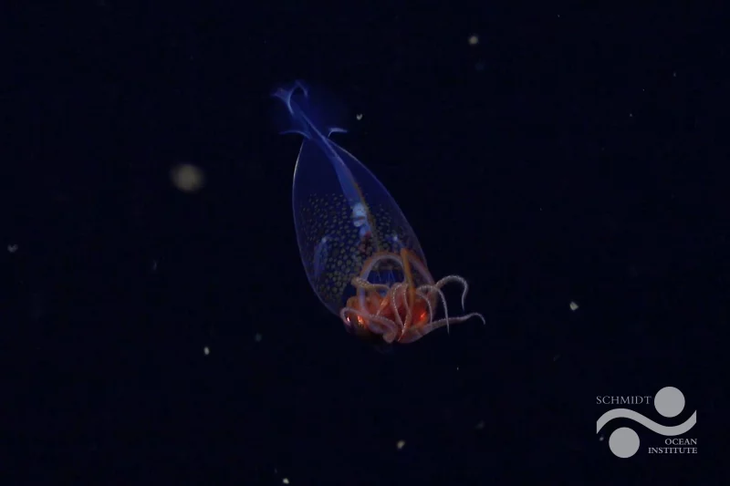
Giant squid filmed for the first time in its natural habitat deep in the South Atlantic Ocean - Photo: NPR
A giant squid has been filmed for the first time in its natural habitat on the deep sea floor, a milestone since the species was discovered in 1925, NPR reported on April 15.
The discovery was made by deep-sea fish expert Thom Linley, who was preparing for a dive when he spotted the squid's eye. He immediately sent the image to Dr Kat Bolstad at Auckland University of Technology - a deep-sea squid expert - for verification, but the image was too blurry to make a definitive identification.
He then contacted glass squid researcher Aaron Evans, and the two quickly identified it as a giant squid based on the characteristic hooks on its tentacles.
Dr Bolstad said she was delighted to see the first video of the giant squid in its habitat. “For the past 100 years, we have known them mainly from the stomachs of whales and seabirds, or as predators of fangtooth fish caught in fishing,” she said.
First time filming giant squid
The squid was discovered as a juvenile, measuring about 30cm in length, at a depth of nearly 600m below the surface of the South Atlantic Ocean in March. The footage was captured by a remote-controlled device at the Schmidt Ocean Institute (USA).
This squid has pearly eyes and internal organs, and a transparent body - typical characteristics of the Cranchiidae family, also known as "glass squid". According to Dr. Bolstad, as they mature, their bodies become thicker and more opaque due to muscle development.
Giant squid are mysterious creatures that live in the deep sea near Antarctica. They can grow up to 7m long and weigh more than 500kg, making them the heaviest invertebrates ever known. Their notable features are the hooks on their tentacles, which help them hunt prey and defend against predators such as sperm whales.
Because they have very large and sensitive eyes, they often stay away from research equipment with bright lights or loud sounds, making it extremely difficult to film, said Dr Bolstad.
The successful filming of this baby squid opens up a rare opportunity to study the behavior and early development of this mysterious animal, something that could previously only be inferred from similar squid species.
Source: https://tuoitre.vn/lan-dau-quay-duoc-muc-khong-lo-trong-tu-nhien-20250416164453422.htm






![[Photo] Solemn opening of the 1st Government Party Congress](https://vphoto.vietnam.vn/thumb/1200x675/vietnam/resource/IMAGE/2025/10/13/1760337945186_ndo_br_img-0787-jpg.webp)

![[INFOGRAPHIC] Birds follow storms to find food](https://vphoto.vietnam.vn/thumb/402x226/vietnam/resource/IMAGE/2025/10/13/1760345532978_thumb-chim-hai-au-jpg.webp)








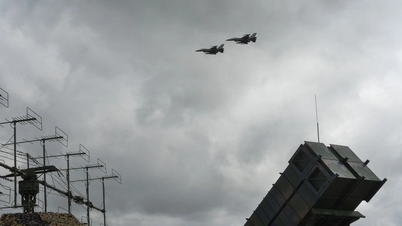







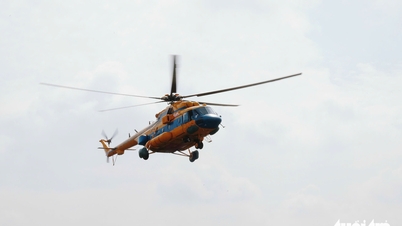


![[Photo] General Secretary To Lam attends the opening of the 1st Government Party Congress](https://vphoto.vietnam.vn/thumb/1200x675/vietnam/resource/IMAGE/2025/10/13/1760321055249_ndo_br_cover-9284-jpg.webp)





































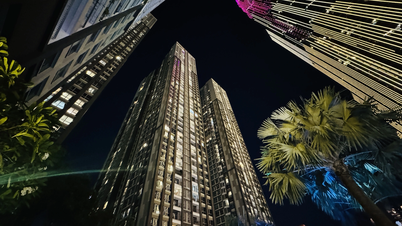












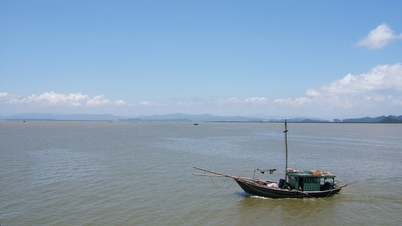




















Comment (0)